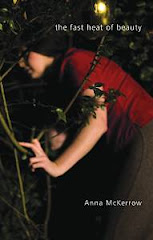I became aware of the
concept of reincarnation at a young age, being presented with the idea that our
souls use the earth as a vast schoolroom, returning to it to learn new lessons
over many lives, as a completely logical concept by my mother. I continue to
view it as entirely likely.
When I was older I
discovered that my grandmother had for many years been secretary and editor to
A J Stewart, author of Falcon: The
Autobiography of His Grace James IV, King of Scots. Ms Stewart’s fascinating
book was the account of her past life as James IV, and she was completely
convinced of the veracity of her story.
The guiding ethos of this
work is my interest in the correlations between artistic and spiritual
practices, and the strong place of language within practices such as
meditation, magic, divination etc. After producing a process-based poetic work
on the tarot I wondered whether past life recall stories would be an
interesting medium for a similar processual approach.
I am interested in the way
that a past life “memory”, or story, is accessed via a hypnotic state, and
relayed to the hypnotist or therapist in a state very much like a waking dream.
We have all had the experience of language in dreams, where the words that seem
so profound in the dream are nonsense when awake.
There is also an element
of translation or decryption present in past life tales, in the sense that they
are usually relayed back in a somewhat fragmentary way from the border of the
unconscious. In mediumship this is a common problem, because communicating with
the spirit world is described as talking with someone very far away, or
operating on a very different frequency of sound. Discrepancies occur.
I see now how we can wander and get lost in the
memories of the automatist when we so-called dead try to communicate. This kind
of mutual selection is bound to be what my friend Gerald calls a “mixed grill”
– Received from Winifred
Coombe Tennant by Geraldine Cummins in Swan
on a Black Sea: A Study in Automatic Writing eds Signe Toksvig, 1971.
I wanted to push this
derangement of language another step further, this “mixed grill” of language
from one side, death, being translated through to the other side, life.
I worked with a digital
dictation app into which I read published accounts of past lives from a variety
of sources. This produced its own version of the text, complete with
interesting inaccuracies and juxtapositions and a surprising amount of digital
and online-speak, which can only reflect the programming of the app to be
sensitive to current technological jargon. In the way that the app “made sense”
of what I gave it, we too tend to interpret accounts such as past life
“memories” through the veils of historical fact, bias, scientific rationale,
physics theory or personal prejudice.
With past life regression
hypnotic work there is also the possible issue of suggestion on the part of the
hypnotist/therapist, again echoing the possible adjustment of the text. This
mediation is also common in mediumship, as mentioned above. In Swan on a Black Sea, the spirit of the very
politically liberal Mrs Coombe-Tennant sometimes “transmitted” far more
conservative political opinions, which was deemed to be the bias of the medium
Miss Cummins’ own beliefs on the original message.
Each poem in this
collection is based on one particular past life story and is the result of
translation and rewriting from the original text (the original experience) to a
doubly mediated text – a version of the original mediated first by technology
and second by the writer (me). Some pieces were recorded by the app direct from
online videos rather than being read aloud by me. The poems are therefore
subject to technological, programmed language bias and personal bias/artistic
style on my part. This is an integral part of their being.






No comments:
Post a Comment